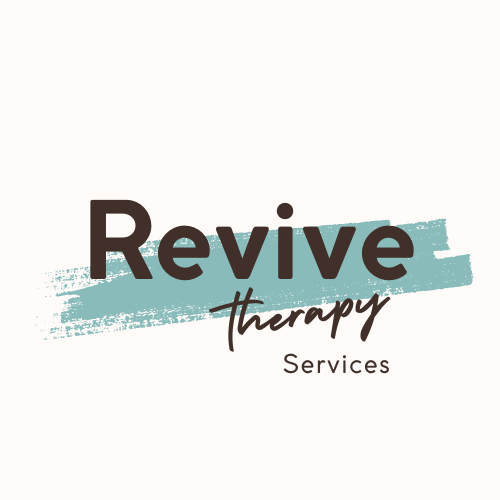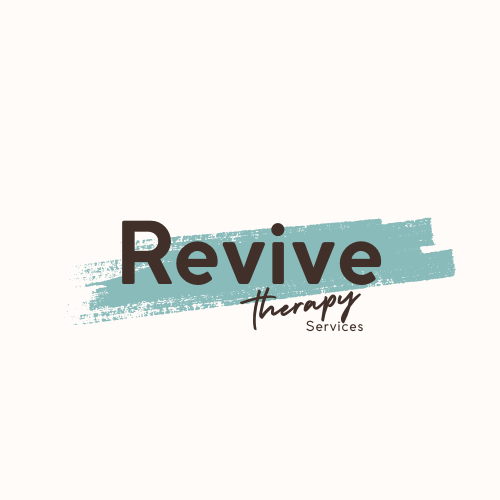Coping with Medical Trauma: Effective Techniques for Self-Care and Emotional Well-being
Dealing with medical trauma can be an incredibly challenging and overwhelming experience that affects not only your physical health but also your emotional well-being. Whether you've recently undergone major surgery, received a difficult diagnosis, or witnessed a loved one's health decline, the impact can be profound and deeply unsettling. At Revive Therapy in Philadelphia, PA, we understand the importance of prioritizing your mental health during this difficult time. In this blog post, we'll delve deeper into effective techniques for self-care and emotional well-being that can help you cope with medical trauma. Remember, you're not alone in this journey, and there is support available to help you navigate the healing process.
Acknowledge Your Feelings:
Medical trauma can evoke a rollercoaster of emotions. It's normal to experience fear, sadness, anger, or even guilt. Recognize that these feelings are a natural response to the circumstances you're facing. Allow yourself the space to acknowledge and accept these emotions without judgment. Remember, your feelings are valid, and it's crucial to give yourself permission to express them.
Seek Support for Medical Trauma:
Building a support system is essential for coping with medical trauma. Reach out to your friends, family, or a support group that specializes in medical trauma. Connecting with others who have experienced similar challenges can provide a safe space for you to share your thoughts and emotions. Additionally, consider seeking professional help from therapists or counselors who can guide you through the healing process. They can offer effective coping strategies tailored to your unique situation and provide valuable support.
Practice Self-Compassion:
It's common to blame yourself or feel guilty about the situation you're in. However, it's important to practice self-compassion and remind yourself that you did not cause medical trauma. Treat yourself with kindness and understanding, just as you would treat a close friend. Engage in activities that bring you joy and provide a sense of comfort, whether it's listening to music, reading a book, or taking a relaxing bath. Remember, you deserve care and love during this challenging time.
Establish a Routine:
Creating a routine can provide structure and stability during uncertain times. Start by setting small, achievable goals for yourself each day. This could include engaging in gentle physical activity, maintaining a healthy diet, or practicing mindfulness exercises. Having a routine helps create a sense of normalcy and empowers you to take control of your well-being. It also provides a sense of purpose and accomplishment.
Engage in Relaxation Techniques:
Relaxation techniques play a vital role in reducing anxiety and promoting emotional well-being. Explore various practices such as deep breathing exercises, progressive muscle relaxation, or guided meditation. These techniques can help you manage stress, improve sleep quality, and enhance your overall mental state. Consider attending relaxation classes or utilizing smartphone applications that offer guided meditations or soothing music. Find what works best for you and incorporate these techniques into your daily routine.
Practice Mindfulness:
Mindfulness involves being fully present at the moment and observing your thoughts and feelings without judgment. It can be particularly helpful when coping with medical trauma. By practicing mindfulness, you can cultivate a sense of acceptance and non-reactivity towards your experiences, reducing anxiety and promoting emotional resilience. Incorporate mindfulness exercises into your daily routine, such as mindful breathing, body scans, or mindful walking. These practices can help ground you in the present moment and provide a sense of calm amidst the storm.
Prioritize Self-Care:
Taking care of your physical and emotional well-being is crucial when recovering from medical trauma. Ensure you're getting enough sleep, maintaining a nutritious diet, and engaging in regular physical activity that aligns with your medical condition and capabilities. Don't forget to indulge in activities that bring you joy and relaxation, whether it's spending time in nature, pursuing a hobby, or enjoying quality time with loved ones. Prioritizing self-care allows you to recharge and nurture your overall well-being.
Educate Yourself:
Knowledge is power, especially when it comes to understanding your medical condition and treatment options. Educate yourself about your situation by asking questions and seeking information from reliable sources. Stay informed about the progress in medical research related to your condition. However, be mindful of overwhelming yourself with excessive information. Remember, your healthcare provider is an invaluable resource who can guide and support you through your medical journey. Don't hesitate to seek their expertise and ask for clarification when needed.
Start Therapy for Medical Trauma in Philadelphia. PA Today and Find the Support and Validation You Need
Coping with medical trauma is a complex and deeply personal journey. It's important to remember that healing takes time, and everyone's path to recovery is unique. At Revive Therapy in Philadelphia, PA, we're committed to supporting you every step of the way. By acknowledging your feelings, seeking support, practicing self-compassion, establishing a routine, engaging in relaxation techniques, practicing mindfulness, prioritizing self-care, and educating yourself, you can enhance your emotional well-being and navigate the healing process with greater resilience. Remember, you're not alone, and there is hope for brighter days ahead. Reach out to us at Revive Therapy if you need professional guidance or support along your healing journey.
Follow the steps below to get started on your own healing path.
Read Our FAQ to answer any questions you may have.
Reach out via our convenient online contact form
Begin your journey to healing
Other Services at Revive Therapy
Getting therapy support is perfectly OK! You deserve a space to talk through life events that may be holding you back. Whether this is your first time in therapy or you’ve been here before, I am here to help you process, work through, and move toward your goals in a healthy and sustainable way. If you’re looking for other services at Revive Therapy in Pennsylvania, I offer other services. This includes Eating disorder treatment, body image issues, binge eating, and more. I offer support with EMDR therapy if you’re in need of more specialized support. Additionally, all services are offered via online therapy in Pennsylvania. When you’re ready for support. Call now!


